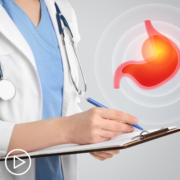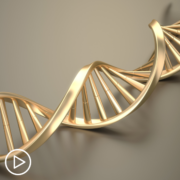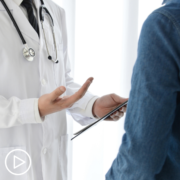Factors to Consider When Choosing a Gastric Cancer Treatment Approach
Factors to Consider When Choosing a Gastric Cancer Treatment Approach from Patient Empowerment Network on Vimeo.
What factors should be considered when choosing a gastric cancer treatment approach? Dr. Yelena Janjigian outlines key considerations that help determine the best treatment for an individual patient.
Dr. Yelena Janjigian is Chief of Gastrointestinal Oncology Service at Memorial Sloan Kettering Cancer Center.
See More From INSIST! Gastric Cancer
Related Programs:

|

|

How Do Biomarker Test Results Impact Gastric Cancer Treatment Options? |
Transcript:
Katherine:
Are there other decision factors involved in deciding on treatment options? You mentioned age, comorbidities. What else do you look at?
Dr. Janjigian:
Yeah, the other important factor as I said is nutrition. Being able to stay fit and stay independent is very important. Some of my patients ask me, and then they feel like what they eat is so important that as soon as they get their diagnosis, they restrict their diet. And then they start losing weight. And that’s not good. The number one negative prognostic factor is if you lose more than 10 percent of your body weight within the first few months of the diagnosis – because you get really weak, and then you can’t tolerate the chemotherapy. So, I tell the patients, “Your body will take from you whatever it wants. The cancer will take from you, from your body. So, you need to support yourself nutritionally.” So, if you don’t feel like eating a salad, but you are craving a cookie, it’s okay.
Have that cookie; just don’t lose weight. And I think that’s the number one. And also, the other factor is how do you communicate your diagnosis and your prognosis to your family and your friends? Because then everybody’s asking and making you in some ways anxious, your job. And what I tell patients is, “It’s on need-to-know basis.” If you find love and support, then you can tell people.
Otherwise, you can just loosely kind of mention that you need some help, and you’re going through treatment without specific details. And the great part about these combination immunotherapies is that a lot of our functional patients actually continue to work through this. And so, we fill out whatever forms they need for their jobs and so forth. But we have lawyers that are continuing to work, teachers, and sometimes even construction workers. So, really, I would say make decisions as they come up.
Don’t run too far ahead and sort of assume that you’re going to not be well. But if you want to take some time off, that’s okay too. And so, I think the treatment paradigm for this disease has evolved so much that there’s a lot of misconceptions. And I think the job of a good oncologist is to let the patient live their life in as normal a fashion as possible.
So, we work the chemo schedules around their schedule. Some of these immunotherapies you can give once a month. So, I have patients who will fly into see me, for example, get the dose, and then go back home. So, I think don’t be afraid to ask for what you need.










